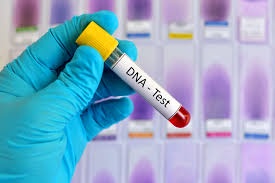Technological innovation and progress have enabled humanity to accomplish several significant firsts and attain unprecedented levels of dependability in the twenty-first century. Accurate and correct identification of an individual is essential for the efficient administration of justice, particularly in our sector, where the uniqueness of the person implicated in a crime is highly valued.
As the popularity of DNA profiling has grown, thousands of people are decoding family secrets and learning more about their genetic makeup. Although genetic testing conducted directly with consumers yields groundbreaking results, it also poses complex issues regarding identity, relatives, and the prospects for the future.
DNA Profiling
Fundamentally, DNA is the genetic material present in all living cells. With growing studies in this field, new and fun facts about DNA are revealed every day. Every human being on the planet has a unique DNA sequence and identity. DNA profiling is essentially a scientific way to identify a single person and differentiate between two persons.
After analyzing and examining materials like tissue, hair, sperm, etc., that contain a specific person's DNA, forensic experts compare the DNA to the identified person. DNA profiling involves several techniques, including DNA amplification, mitochondrial analysis, mapping fine-grained sequences, etc.
Application of DNA Profiling
Utilizing DNA profiling, the authorities may establish familial links and accurately determine a child's paternity by obtaining samples of DNA from both the mother and the father. It is also employed in rape cases when the accused's genetic traces are used to identify them, and it may accurately identify deceased corpses in circumstances where it is difficult to determine the identification prima facie. Programs like Choice DNA testing’s DNA profiling technologies offer several identity testing options.
DNA Profiling and Criminal Law
DNA testing's rapid technological advancement and our growing understanding of the human genome have greatly influenced forensic medicine. In situations of sexual misconduct, homicide, and unidentified human remains, identification testing with only a small number of biological samples is made possible by genetic profiling of persons at the DNA level. Additionally, the level of gene products used in paternity testing is shifting to the genomic level. This article discusses the current state of DNA methods in forensic science as well as some of the benefits of DNA testing over traditional forensic serology.
identification of Culprit
As of now, databases pertaining to DNA profiling technologies are not governed by any particular regulations. Judges are the only ones who can make decisions on the admissibility of DNA evidence and related tests. DNA evidence may be utilized in a criminal trial in various ways, such as familial DNA searches if the DNA recovered has a striking likeness to the culprit. This approach essentially focuses on the accused's close relatives. The authorities use DNA technology in criminal trials in conjunction with other techniques, including partial matches and covert DNA collection. With the help of DNA profiling technology, the culprit can be identified. This rules out any possibility of error in accusing and punishing an innocent.
Online DNA Test and Identity
Choice DNA testing’s online DNA test by pictures adds colorful new threads to the fabric of your extended family's heritage by illuminating your cultural background and long-lost kin. However, the question arises: how do these family history tales affect your sense of self? The answers lie in your genetics, which reveals your ancestry but does not define who you are now. Your complex identity has more facets than just your varied ethnic origin. It's entirely up to you how you decide to integrate your DNA findings into your sense of self. Genealogical research can provide context, enhancing the significance of genetic ancestry revelations.
Getting More From Your Family Than Looks
It's vital to remember that although DNA might shed light on inherited health concerns, culture, customs, and beliefs are also passed down through families. Beyond genetics, there are ties between the principles your family instills, the dialect your parents speak, and the foods your grandmother taught you. Treasure the ancestry you possess within you and navigate the information that an online DNA test by pictures offers.
Conclusion
With its enormous effects on society at large, the discovery of DNA was regarded as one of the greatest discoveries ever made. As was previously said, DNA has brought much-needed efficiency and dependability to the legal field, helping with things like DNA fingerprinting and solving family mysteries.


No comments yet